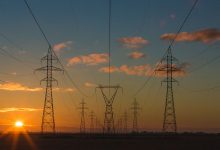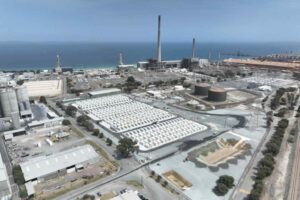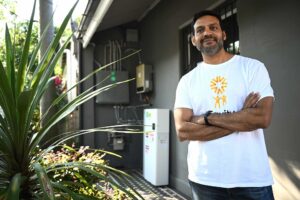The NSW Government is failing to take advantage of opportunities to cut energy costs and manage peak electricity demand pressures through inadequate policies and incentives to support ‘demand side’ participation (DSP) of big energy users, according to a new report.
In a report published on Thursday, analysts Nexa Advisory argues the NSW government is ignoring opportunities to use demand side management to relieve market pressures.
Nexa argues that, with the looming closure of the Eraring Power Station, the NSW government needs to do more to take advantage of the opportunities that exist to effectively manage the state’s electricity system, providing a level of ‘insurance’ while it manages the phase out of its coal generators.
“With Eraring set to close, the NSW Government has a very obvious solution to deliver lower cost electricity and higher reliability to consumers. Our commercial and industrial businesses keep the economy moving,” CEO of Nexa Advisory, Stephanie Bashir, said.
“Implementing a well-designed DSP program would provide insurance for Eraring’s impending closure.”
Nexa argues that the NSW government should expand the eligibility for large industrial energy users to participate in demand response mechanisms, which could include expanding the Capacity Investment Scheme or the Long-Term Energy Service Agreements to include demand response measures.
In 2023, the NSW Government commissioned a report into the implications of Origin Energy’s announcement that it would accelerate the closure of the Eraring Power Station.
The resulting ‘NSW Electricity Supply and Reliability Check Up’ report recommended that the NSW government work to expand participation in demand response measures to reduce overall peak demand to boost energy system reliability.
The NSW government has since entered talks with Eraring owner Origin Energy that may extend the life of the coal plant – attracting protestations from the state’s renewable energy industry.
Nexa Advisory says demand response participation (DSP) would be a cost-effective way to reduce peak demand and energy costs while supporting improved system reliability.
“The capex required to activate 1 MW of DSP capacity is a fraction of what is needed to build 1 MW of supply-side capacity,” Bashir said.
“To date, big electricity users take advantage of DSP because they tend to have the resources and know-how. There is a world of opportunity waiting for mid-sized C&I customers to engage meaningfully in DSP. With the right policies, incentives, and knowledge, they too can capitalise on the benefits,” Bashir added.
It says greater support is needed to encourage the participation of more of the state’s commercial and industrial (C&I) energy users in existing policy responses, particularly with the reduction in capacity offered the peak demand reduction scheme.
“While at the very large end of C&I customers we see significant uptake in DSP as they are large enough and savvy enough to have their own market and network arrangements, there is a significant number of mid-sized C&I customers that are currently missing out,” the report says.
“It is largely a lack of policy, sophisticated incentives and knowledge that prevents this cohort of C&I customer from engaging meaningfully in DSP.”
Echoing the key findings of the Nexa report, director at Climate Energy Finance, Tim Buckley, said increasing that policy support for increasing demand side participation would have the added benefit of supporting the roll out of renewable energy supply.
“We need to deploy all commercially viable solutions to effectively work together to enhance grid reliability and reduce cost of living pressures. DSP is a logical, low cost solution that needs to be accelerated as a priority. Increased policy support is key,” Buckley said.








